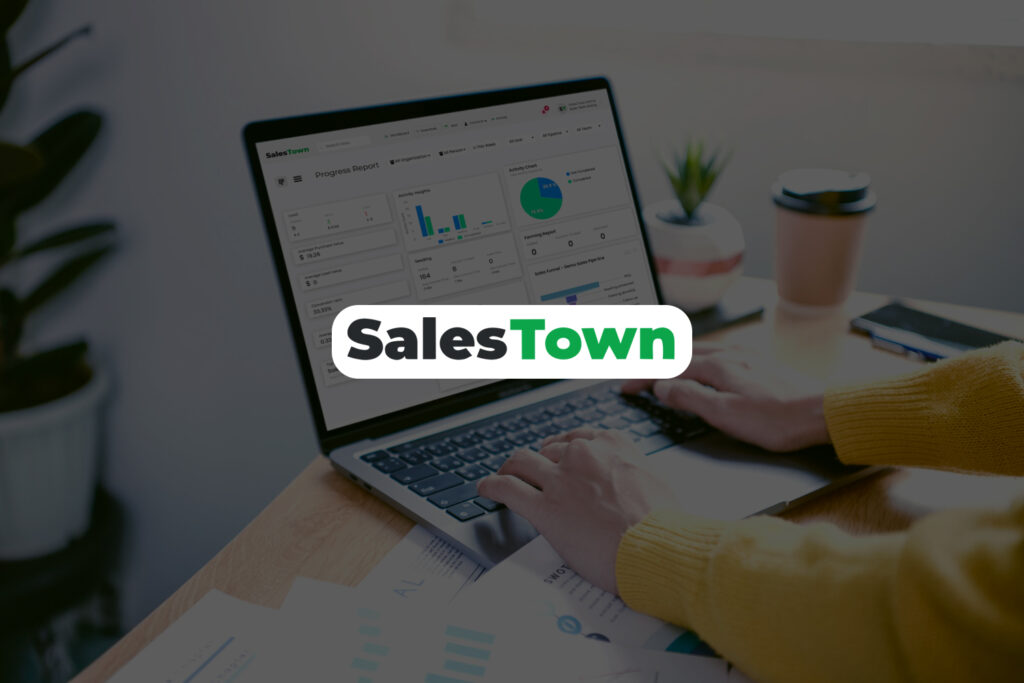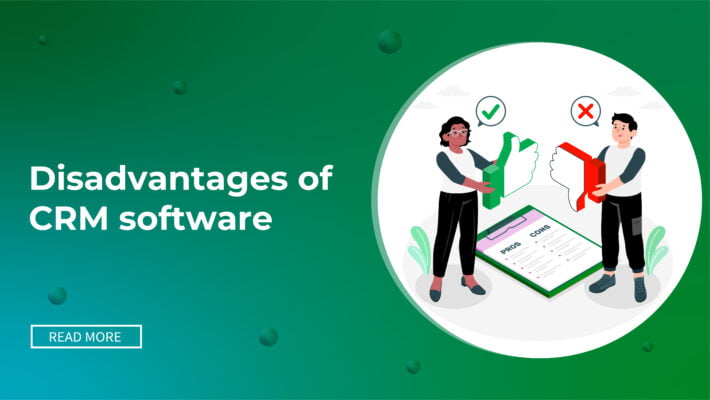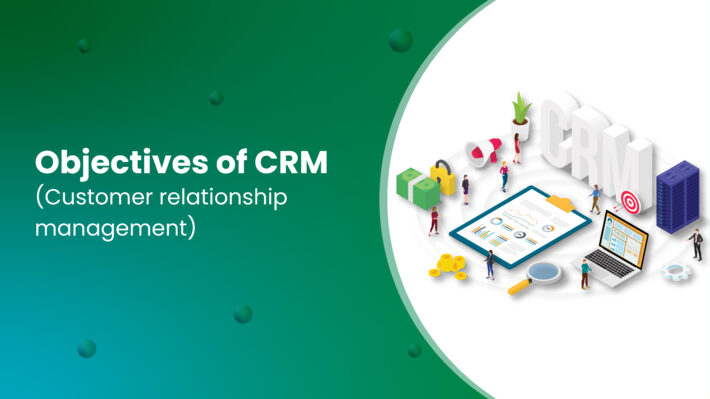What is Customer Relationship Management (CRM) software?

What is CRM Software?
CRM (Customer Relationship Management) software is a tool that helps businesses manage their relationships with customers. It’s designed to keep track of customer information, like contact details, preferences, purchase history, and communication, all in one place. This helps businesses understand their customers better, provide personalized services, and improve overall customer satisfaction.
A CRM system usually includes features like contact management, sales tracking, marketing automation, customer support, and detailed reporting. The goal is to make managing customer relationships easier and more efficient, which leads to better customer retention and higher sales.
CRM Strategy: A Plan to Manage Customer Relationships
A CRM strategy is a plan businesses use to make the most of Customer Relationship Management (CRM) tools. It’s not just about using software—it’s about how a business organizes and uses customer data to improve sales, marketing, and customer service.
What a CRM Strategy Includes:
✔️ Customer Segmentation: Grouping customers by interests, behavior, or demographics to offer them better services.
✔️ Sales Management: Keeping track of leads and sales to close more deals smoothly.
✔️ Customer Support: Using customer data to understand needs and provide better service.
✔️ Marketing Automation: Sending emails, follow-ups, and social media posts automatically based on customer actions.
A good CRM strategy helps businesses build strong customer relationships, increase loyalty, and grow revenue.
History of CRM Software
CRM software has been around for several decades, and it has evolved a lot. Here’s a look at its history:
1960s – Early Days: The first idea of CRM came in the 1960s when businesses started storing customer data. This wasn’t digital; it was mostly done manually or on paper.
1980s – Contact Management: In the 1980s, businesses began using computers to store customer information. Basic software programs helped with scheduling appointments and storing contact details.
1990s – The First CRM Systems: The 1990s saw the rise of real CRM software. Companies like Siebel Systems introduced tools that helped track customer interactions and sales processes in more detail.
2000s – Cloud-based CRM: The 2000s brought cloud-based CRM systems, like Salesforce. These tools made CRM more accessible, as they didn’t require businesses to maintain expensive hardware and software. Data could now be accessed from anywhere via the internet.
2010s – AI and Automation: Modern CRM systems now use artificial intelligence (AI) and automation. They can predict customer behavior, automate follow-up emails, and suggest next steps for sales teams based on data analysis.
Do I Need a CRM?
Not every business needs CRM software, but it’s beneficial for many. Here’s how you can determine if you need a CRM:
Customer Information Management: If you find it difficult to keep track of customer details (like emails, phone numbers, or previous purchases), CRM can centralize all that information in one place for easier access.
Growing Sales & Marketing Efforts: If your sales and marketing efforts are becoming too complex to handle manually, CRM software can help streamline these processes. It allows you to manage leads and track conversions automatically.
Customer Retention: If you want to keep track of customer satisfaction and ensure repeat business, CRM helps you monitor feedback and identify customers who might need additional support.
Collaboration Between Teams: CRM helps different departments (like sales, customer service, and marketing) work together by sharing customer information and updates, improving teamwork.
Benefits of CRM Software
CRM (Customer Relationship Management) software helps businesses manage their relationships with customers in a more organized and effective way. Here’s how it can benefit your business:
1. Better Customer Relationships
CRM keeps all customer information in one place, such as contact details, purchase history, and communication records. This makes it easier for businesses to understand their customers’ needs and preferences. When you know more about your customers, you can personalize your interactions, making them feel valued and improving their overall experience. For example, a business can send tailored offers or follow up on previous conversations, which helps build trust and loyalty.
2. Improved Sales Performance
CRM helps track every step of the sales process. From the first time you contact a lead to closing the deal, CRM software records everything. This helps sales teams stay organized and manage their leads more effectively. With CRM, you can see which leads are more likely to convert, prioritize important tasks, and improve follow-up strategies. All of this helps increase sales and ensures nothing slips through the cracks.
3. Better Communication
CRM systems centralize communication, meaning everyone in your business has access to the same customer information. Whether it’s the sales team, customer service, or marketing, each department can see what’s happening with the customer. This way, there’s no risk of misunderstanding or missing important messages. For example, if a customer called about an issue, anyone in the company could easily find that information and respond appropriately, ensuring smooth and clear communication.
4. Increased Efficiency
With CRM software, many tasks can be automated, like sending out emails, reminders for follow-ups, or even setting up meetings. This saves a lot of time for employees, as they don’t have to do everything manually. Automation makes the work process faster and allows your team to focus on higher-value tasks, like nurturing customer relationships or finding new leads. For example, CRM can automatically send a “Thank You” email after a purchase or remind a salesperson to follow up with a lead after a week.
5. Data-Driven Insights
CRM software provides detailed reports about your business, including sales data, customer behavior, and trends. These insights help you make better decisions for the future. For example, if the data shows that a certain product is popular during a specific season, you can plan ahead for that trend. By understanding customer behavior, you can adjust your strategies and improve sales, marketing efforts, and customer service.
6. Stronger Collaboration
When everyone in your business has access to the same information, it makes teamwork easier. For example, salespeople can collaborate with customer service teams to provide the best possible experience for customers. Teams can share information and work together to solve problems faster. A unified system helps eliminate misunderstandings, and everyone stays on the same page, leading to better results overall.
Types of CRM Software
There are three main types of CRM systems, each designed to serve different business needs. Here’s a breakdown of each type:
Operational CRM: Operational CRMs focus on automating and improving the day-to-day customer-facing processes. This includes tasks like managing contacts, tracking sales, handling marketing campaigns, and providing customer support. The goal of operational CRM is to streamline processes to improve efficiency and reduce manual work.
Key features include:
- Contact management
- Sales automation
- Marketing automation
- Customer service management
This type of CRM is ideal for businesses that want to optimize their customer-facing operations.
Analytical CRM: Analytical CRMs focus on analyzing customer data to gain insights into customer behavior, preferences, and trends. This type of CRM helps businesses make data-driven decisions. For example, it can help a company figure out which customers are most likely to make a purchase or which marketing strategies are most effective.
Key features include:
- Data analysis tools
- Customer segmentation
- Reporting and dashboards
- Predictive analytics
Analytical CRM is great for businesses that want to use customer data to improve marketing strategies and customer retention.
Collaborative CRM: Collaborative CRMs focus on improving communication and collaboration between teams within an organization. This type of CRM centralizes customer information so that teams (such as sales, marketing, and customer support) can share insights, discuss customer needs, and work together to provide a better customer experience.
Key features include:
- Shared customer databases
- Real-time communication tools
- Activity tracking
- Team collaboration features
Collaborative CRM is beneficial for businesses with large teams who need to work closely together to address customer needs.
How to Choose a CRM?
Choosing the right CRM system for your business is important. Here are a few factors to keep in mind when selecting a CRM:
Size and Needs of Your Business: Small businesses might only need a basic CRM with simple features, while larger companies may need more advanced features for managing a larger volume of customer interactions.
Ease of Use: The CRM should be easy for your team to learn and use. A complicated system can cause frustration and slow down adoption, so look for one with a user-friendly interface.
Features and Functionality: Evaluate what features the CRM offers. Does it track sales? Does it automate marketing tasks? Does it integrate with your other tools? Choose a CRM that fits your specific business needs.
Integration with Other Tools: Make sure the CRM integrates well with other software you already use, such as email marketing platforms, social media tools, or accounting software.
Customer Support: A good CRM provider will offer support when you need help. Look for options like live chat, phone support, or a detailed knowledge base.
Scalability: As your business grows, your CRM needs will change. Choose a CRM that can scale with your business, adding more features or licenses as needed.
CRM Implementation
Once you’ve selected a CRM, it’s time to implement it. Here’s a step-by-step guide to successful CRM implementation:
Set Clear Goals: Before you start, decide what you want to achieve with the CRM. Whether it’s improving sales, better tracking of customer interactions, or automating marketing, having clear goals helps you stay on track.
Data Migration: If you’re switching from another system, you’ll need to transfer your existing customer data into the new CRM. Make sure the data is accurate and complete to avoid issues later on.
Customization: Customize the CRM to match your business needs. Set up workflows, pipelines, fields, and dashboards to make the CRM work for your team.
Training: Your team needs to know how to use the CRM effectively. Provide training to ensure they understand how to enter data, track sales, and access reports.
Monitor and Optimize: After implementing the CRM, regularly check its performance. If something isn’t working as expected, tweak the settings or adjust workflows to improve results.
Why Choose Salestown CRM?
Salestown CRM stands out for its user-friendly features and powerful capabilities. Here are some reasons why businesses choose Salestown:
Easy to Use: Salestown is designed to be simple and intuitive, so your team can get started quickly without a steep learning curve.
Powerful Analytics: Salestown provides detailed reports and insights to help businesses make data-driven decisions and optimize their sales and marketing efforts.
Customizable: You can tailor Salestown CRM to fit your business processes. Customize fields, sales stages, and reports to match your workflow.
Automation: Salestown automates repetitive tasks like sending follow-up emails or reminders, so your team can focus on building relationships and closing sales.
Integration: Salestown integrates with other popular tools and platforms, such as email services, marketing automation tools, and social media, to keep all your business processes in one place.
Excellent Support: Salestown offers excellent customer support, with resources like training videos, FAQs, and live chat to help you resolve issues quickly.
In conclusion, CRM software is a powerful tool that helps businesses manage and improve their relationships with customers. Whether you’re a small business or a large enterprise, using the right CRM can streamline your processes, improve customer service, and increase sales. Salestown CRM is an excellent choice for businesses looking for an easy-to-use, powerful, and scalable CRM system that can grow with their needs.
Frequently Asked Questions (FAQs)
1. What is the main purpose of CRM software?
CRM software helps businesses keep track of their customers and manage relationships with them. It stores customer information like contact details, purchase history, and communication history in one place. This makes it easier for businesses to provide personalized service, manage sales, and improve customer satisfaction.
2. Can CRM software be used for marketing automation?
Yes, CRM software can automate marketing tasks. For example, it can send follow-up emails, schedule social media posts, or remind you to contact customers at the right time. This saves time and helps businesses communicate with customers more effectively.
3. How do I know if my business needs CRM software?
If your business has many customers or sales leads to manage, CRM software can help organize everything in one place. If you find it hard to keep track of customer information or sales, or if your teams are not working well together, CRM software can help improve efficiency and make things run smoothly.
4. What are the costs associated with CRM software?
The cost of CRM software depends on what you need. Some CRMs are free with basic features, while others charge a monthly or yearly fee for more advanced tools. When choosing a CRM, it’s important to think about how it will help your business grow and make sure the price fits your budget.
5. How long does it take to implement CRM software?
How long it takes to set up CRM software depends on the size of your business and how much information you need to move into the system. For smaller businesses, it may only take a few days to get started. For larger businesses, it could take a few weeks. You’ll also need time to train your team on how to use it properly.




[…] handle large volumes smoothly and give a complete view of every client. So many have adopted travel customer relationship management (CRM) software. This software unified all booking data, passenger profiles and conversations in one […]